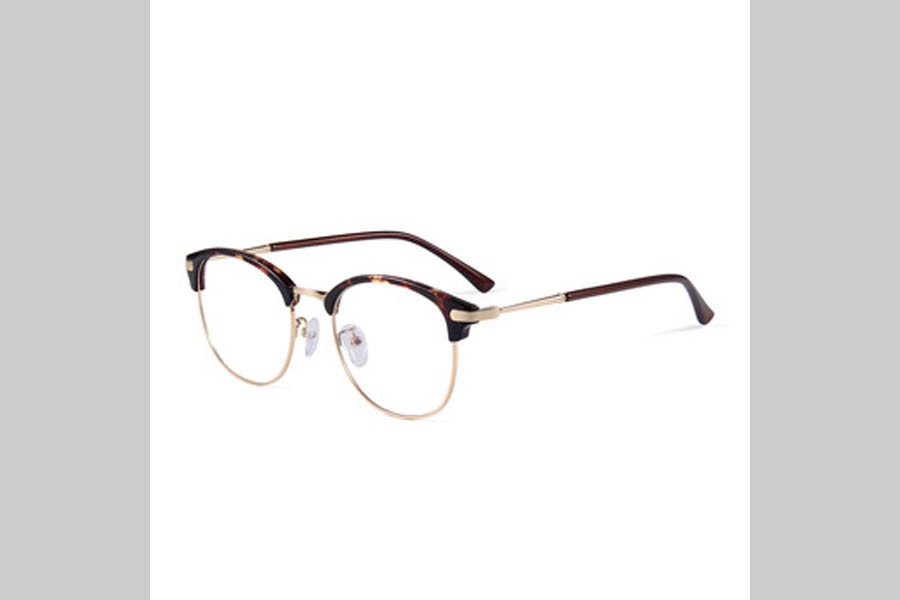Edgar Allan Poe's comic short story The Spectacles shows how disillusioned one gets when one refuses to wear eyeglasses. Even an 82 years old toothless woman the protagonist of the story sees in an opera house appears to be an epitome of beauty. In his vanity he rejects suggestion to use spectacles before they meet, courtesy of mediation of a friend. He is taught a lesson by the old woman who actually happens to be the great-great-grandmother who agrees to marry him and arranges a mock wedding on making him promise to wear glasses on the wedding night. Upon wearing his spectacles, the doting young man discovers, to his horror, the truth. The story though ends happily when a young woman accompanying the old lady and the disappointed man get married.
People in the middle age or some a little later encounter a second juvenile phase because their eyesight becomes poorer. However, most such people by that time have already become habituated to living with their life-partners, children or even grandchildren. Vanity does not quite get the better of such persons and they learn to take life as usual. But prospective bachelors cannot be blamed for feigning they do not suffer from myopia or weak vision.
How confusing sight gives rise to jumbled thoughts has been dealt with multifarious psychological effects in a number of short stories. In one such story The Adventure of a Nearsighted Man by Italo Calvino the protagonist undergoes phases of alternate disappointment and ecstasy only because of using spectacles or not. At one point his preference for thick and dark glass frames make him an alien to all -even to his sweetheart for whom he once left his own small town and now returns to as a successful man in life's station. He abandoned his earlier spectacles because those were light, thin and he thought gave him a female countenance which he hated. Here the ending is not like that of Poe. Frustrated the man proceeds to the less frequented periphery of the town where he gazes blankly in the night's darkness like the grey manuscript of life.
No wonder the role of spectacles cannot be overemphasised! An empire of spectacles -so far as their business is concerned -has been built worldwide capitalising on an increasing number of people developing poor vision at an early age. With computer, smartphones and other optical gadgets demanding more and more time from both young and old people, the market of eyeglasses and stylish frames is expanding fast. Even footpath vendors dealing in readymade spectacles come handy when someone forgets to carry reading glasses or those used for work on computer. The Chinese mark glasses with varying minus or plus powers. One can choose a pair as closer to the power one needs from such footpath vendors.
In such day-to-day business, there is no involvement of emotion or passion. As in the stories, the Cupid's arrow does not strike one's heart with or without spectacles. Sure enough, spectacles can heighten one's personality and conversely make one look like an effeminate character. But then glasses can regulate or deregulate human passion and emotion depending on the visual effect they produce. Those who lack powerful eyesight have to take help of spectacles in order to get a genuine form of the persons they crave after.
However, many would resent the fact that spectacles would assume such a decisive role either in making one highly agreeable or impressive in another's eyes. Even the person looking charming in glasses may hate it because those have become an integral part of him or her. Glasses are but artificial objects and even eyes are considered insufficient means to probing deep. It is the mind that explores the deepest reaches of heart. Mind is what develops an insight into all things abstract. On that count spectacles can be an aid to eyes but never an alternative to mind.


